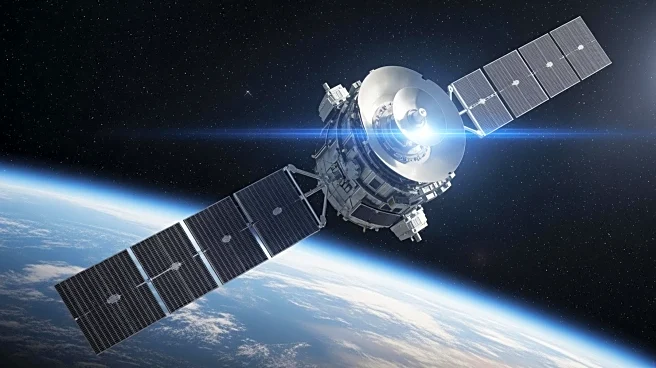What's Happening?
SpaceX is set to launch its 139th mission of the year, marking a record for the company. The launch is scheduled for today, October 23, from Cape Canaveral Space Force Station in Florida. A Falcon 9 rocket will carry the second and final satellite for the Spainsat
Next Generation (NG) constellation, which aims to provide secure military-grade communications for the Spanish Armed Forces and its partners. The launch window opens at 9:30 p.m. EDT, and SpaceX will stream the event live. The Falcon 9's upper stage is expected to deploy the Spainsat NG-2 satellite into a geosynchronous transfer orbit approximately 36 minutes after liftoff. Unlike typical Falcon 9 missions, the rocket's first stage will not return to Earth due to the additional performance required for this payload.
Why It's Important?
This mission underscores SpaceX's growing influence in the aerospace sector, particularly in providing secure communication solutions for military applications. The successful deployment of the Spainsat NG-2 satellite will enhance the Spanish Armed Forces' communication capabilities, potentially strengthening international military partnerships. SpaceX's ability to conduct 139 missions in a single year highlights its operational efficiency and technological prowess, setting a new benchmark in the industry. This achievement may influence future contracts and collaborations with governments and private entities seeking reliable and advanced space-based communication solutions.
What's Next?
Following this launch, SpaceX is likely to continue expanding its satellite deployment capabilities, potentially increasing its involvement in military and governmental projects. The success of the Spainsat NG constellation could lead to further collaborations with Spain and other nations seeking similar communication enhancements. SpaceX's record-setting pace may prompt other aerospace companies to innovate and compete, potentially accelerating advancements in satellite technology and launch operations.
Beyond the Headlines
The implications of SpaceX's record-breaking year extend beyond immediate military applications. The company's achievements may drive broader discussions on the role of private companies in national security and space exploration. As SpaceX continues to push technological boundaries, ethical considerations regarding the militarization of space and the environmental impact of frequent launches may arise, prompting regulatory and policy reviews.


















